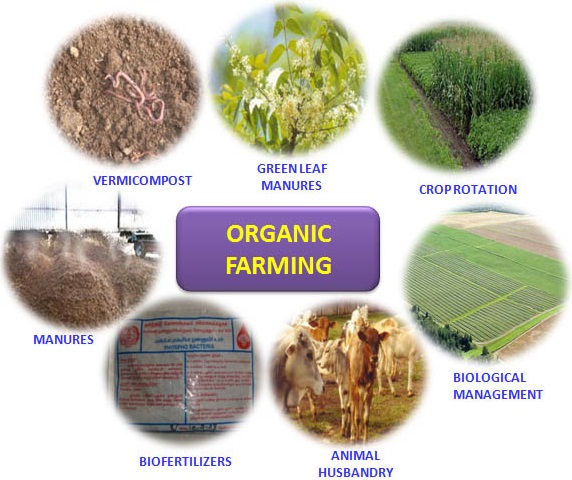Learninsta presents the core concepts of Biology with high-quality research papers and topical review articles.
Organic Farming and its Implementation
It is a method of farming system which primarily aims at cultivating the land and raising crops in such a way, so as to keep the soil alive and in good health by use of organic wastes (crop, animal and farm wastes, aquatic wastes) and other biological materials along with beneficial microbes (biofertilizers) to release nutrients to crops for increased sustainable production in an eco-friendly pollution free environment.
organic farming systems by the farmers in the following ways:
- The selection of locations not contaminated with chemicals
- Appropriate local types of rice plant
- Programming of appropriate crop rotation
- Processing soil with tools not contaminated with chemicals
- Intermitten irrigation
- Use of
Organic agriculture can be defined as “an integrated farming system that strives for sustainability, the enhancement of soil fertility and biological diversity while, with rare exceptions, prohibiting synthetic pesticides, antibiotics, synthetic fertilizers, genetically modified organisms, and growth hormones”.
Organic agriculture considers the medium- and long-term effect of agricultural interventions on the agro-ecosystem. It aims to produce food while establishing an ecological balance to prevent soil fertility or pest problems.
Advantages of Organic Farming
- Minimises the external cost of farming.
- Efficient use of resources.
- Soil and the environment is a public good.
- Healthier food.
- Healthier animals.
- Potential profits.
- Time involved.
- More labour intensive.
Organic farming eliminates the use of synthetic products to maximize the yields that can be produced. It works on creating a healthier soil instead, encouraging the link between healthy plants and protected soils. No chemical herbicides or pesticides are used. Only natural soil enhancement techniques are permitted.
There are basically two types of organic farming: pure organic farming and integrated organic farming. With pure organic farming, the method includes the use of manures and biopesticides with complete avoidance of inorganic chemicals and pesticides.
In the process of pure farming, fertilizer and pesticides obtain from natural sources. It is called a pure form of organic farming. (b) Integrated organic farming – Integrated organic farming consists of integrated nutrients management and integrated pest management.
In a few words, organic farming involves growing techniques and methods that seek to protect the environment, humans, and animals, through sustainable agriculture. As fertilization methods, they mainly use manure, compost, or special organic synthetic fertilizers.
